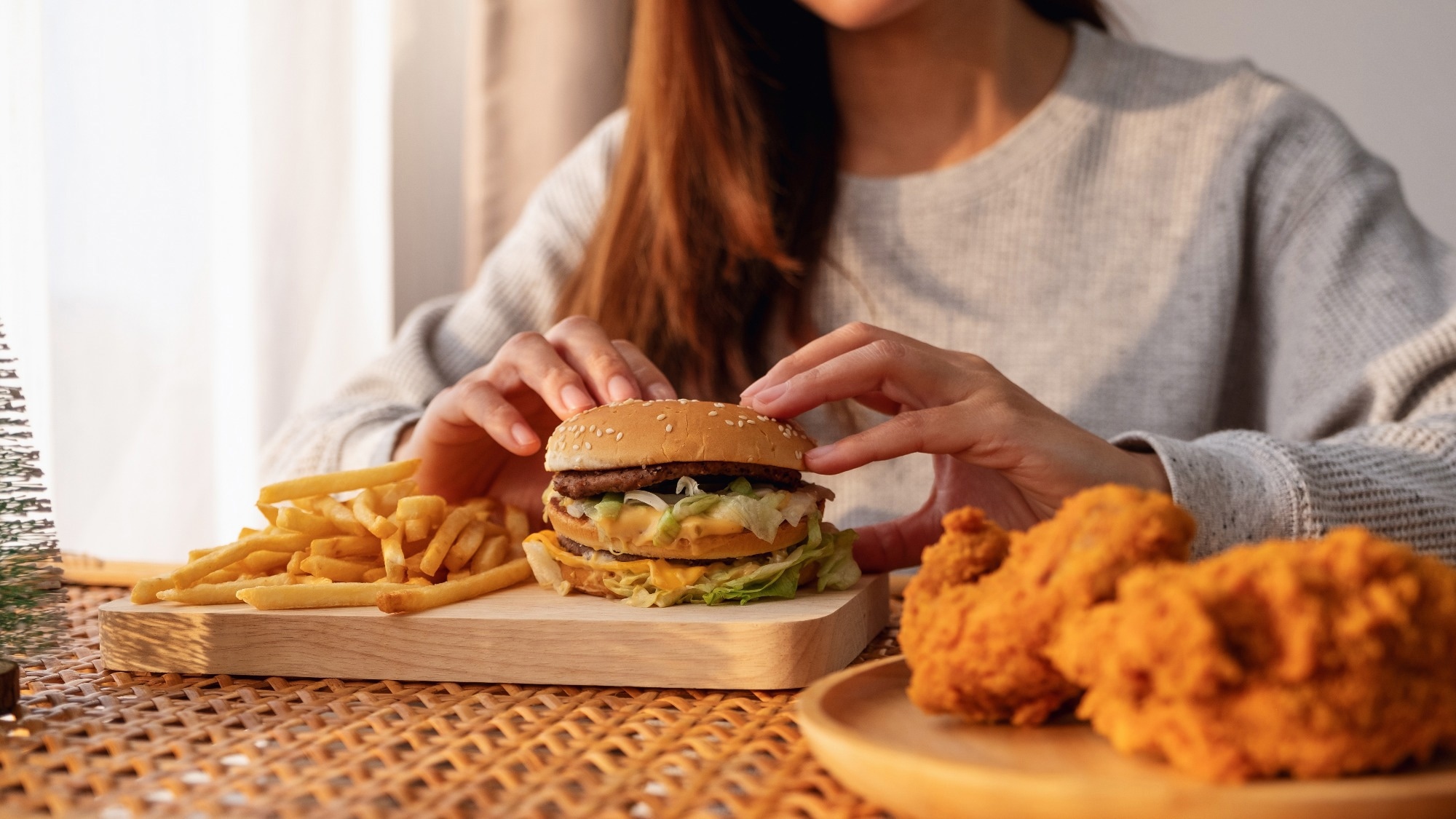A new study links everyday eating habits with inflammatory bowel disease outcomes, showing that choosing anti-inflammatory foods may help patients keep flare-ups at bay.
 Study: Association Between Pro-Inflammatory Potential of Diet and Inflammatory Parameters in a Group of Patients with Inflammatory Bowel Disease. Image Credit: Farknot Architect / Shutterstock.com
Study: Association Between Pro-Inflammatory Potential of Diet and Inflammatory Parameters in a Group of Patients with Inflammatory Bowel Disease. Image Credit: Farknot Architect / Shutterstock.com
In a recent study published in Nutrients, researchers compared the different effects of pro-inflammatory dietary patterns on the severity of inflammatory bowel disease (IBD).
Diet, inflammation, and the growing burden of IBD
IBD, which can be further classified as Crohn’s disease (CD) or ulcerative colitis (UC), is an immune-mediated inflammatory disease arising from genetic and/or environmental factors. Typically, IBD symptoms will develop following an exaggerated immune response to a normal stimulus like food or the intestinal flora.
During UC, mucosal inflammation originates in the rectum and eventually progresses to the proximal colon, causing edema, ulcers, bleeding, and electrolyte loss. Although CD can involve any part of the gastrointestinal tract, it primarily affects the colon and ileum.
The incidence of IBD continues to rise throughout the world, with 20 UC and seven CD cases reported for every 100,000 people in Western Europe and North America. Due to the significant morbidity associated with IBD, it is crucial to determine how modifiable risk factors like diet may impact the inflammatory processes that contribute to this debilitating disease.
Dietary components exacerbating inflammation and dysbiosis include refined sugars, saturated and trans fats, red and processed meats, and food additives. However, it remains unclear how the consumption of multiple food combinations and different eating patterns may impact this risk.
When determining the effect of nutrition on inflammatory processes, it is necessary to calculate the overall intake of all dietary components that may play a role in the inflammation process.
Study design
The present study was conducted at the Medical University of Lodz in Poland to address the urgent global need to quantify the direct association between diet-induced inflammation and IBD severity. Ninety IBD patients were included in the study, 46 and 44 of whom were diagnosed with CD and UC, respectively.
Food intake was recorded through three separate 24-hour dietary interviews, with this data subsequently used to calculate each study participant’s personal dietary inflammatory index (DII).
DII is a novel yet validated scoring system that synthesizes data on 26 dietary components/parameters, including fats, vitamins, micronutrients, and selected flavonoids, to calculate a pro-inflammatory score. Negative DII scores reflected highly anti-inflammatory diet quality, while highly pro-inflammatory diets provided positive scores.
Whereas CD severity was determined by the Crohn’s Disease Activity Index (CDAI), UC severity was based on the Partial Mayo Score (PMS). The European Crohn’s and Colitis Organization (ECCO) guidelines were also used to classify patients with CDAI scores exceeding 150 into remission. Comparatively, CDAI scores 150-220, 220-450, and over 450 reflected mild, moderate, and severe exacerbation, respectively.
Blood samples were collected to measure serum levels of key inflammatory cytokines, including interleukin-6 (IL-6) and IL-1β, and the anti-inflammatory IL-10, using enzyme-linked immunosorbent assay (ELISA).
Pro-inflammatory diets increase IBD severity
No significant difference in DII scores was observed between CD and UC patients; however, scores varied significantly when stratified by disease severity. For example, patients in remission or with mild disease reported significantly higher anti-inflammatory diet scores than those experiencing active disease, with mean DII scores of -0.45 and -.23, respectively.
Logistic regression models were adjusted for confounding sociodemographic factors such as age, sex, body mass index (BMI), biological treatment, disease duration, and smoking status. This analysis suggests that patients who consumed highly inflammatory diets were three times more likely to have moderate-to-severe IBD than those in the lowest tertile.
Interestingly, DII scores did not correlate with circulating IL-6, IL-1β, and IL-10 levels. Although the pathophysiological mechanisms responsible for these observations remain unclear, the authors note that this may reflect patients actively modifying their diets. Furthermore, because only three cytokines were measured and blood samples were collected at a single time, this may not fully capture the long-term effects of diet on systemic inflammation.
Conclusions
The current study indicates a significant association between a pro-inflammatory diet and severe disease activity in patients with IBD. Thus, rather than targeting a specific dietary component, following a comprehensive anti-inflammatory dietary pattern may help reduce disease severity, although further research is needed to confirm these findings.
Study limitations include its cross-sectional design and small sample size. Nevertheless, the study findings emphasize the need for clinicians to formulate personalized and anti-inflammatory diets for IBD patients to reduce disease severity and improve their overall quality of life.
Download your PDF copy now!
Journal reference:
- Godala, M., Gaszyńska, E., & Malecka-Wojciesko, E. (2025). Association Between Pro-Inflammatory Potential of Diet and Inflammatory Parameters in a Group of Patients with Inflammatory Bowel Disease. Nutrients 17(17); 2858. doi:10.3390/nu17172858.